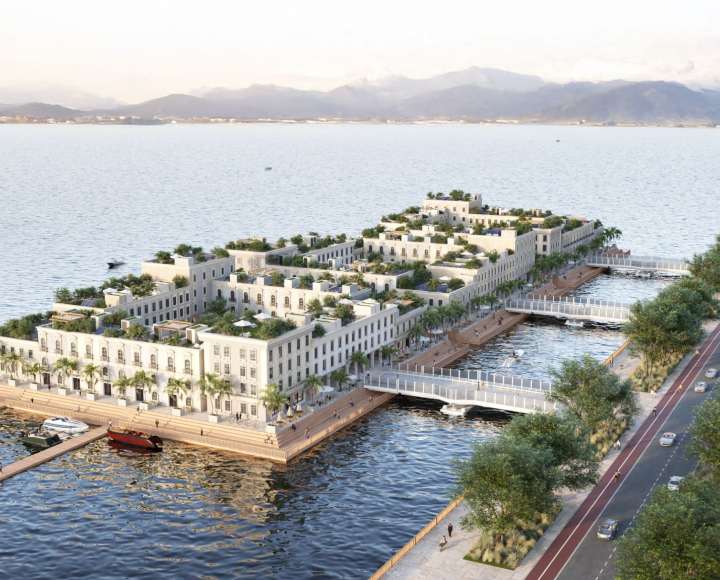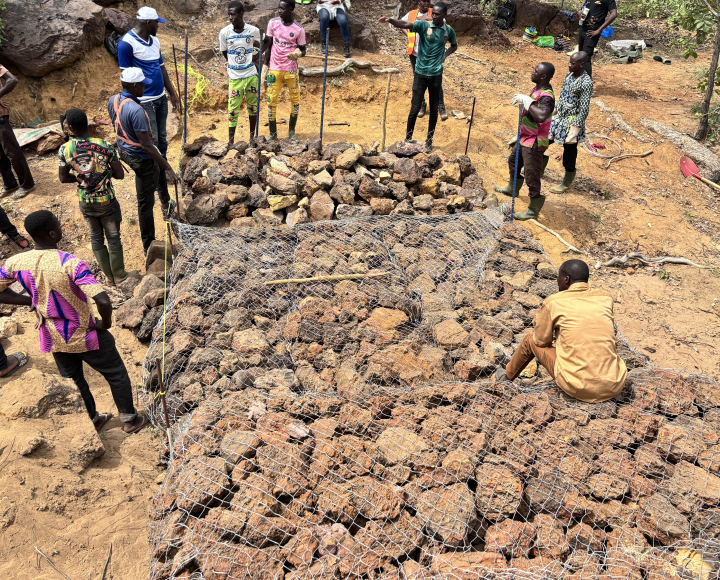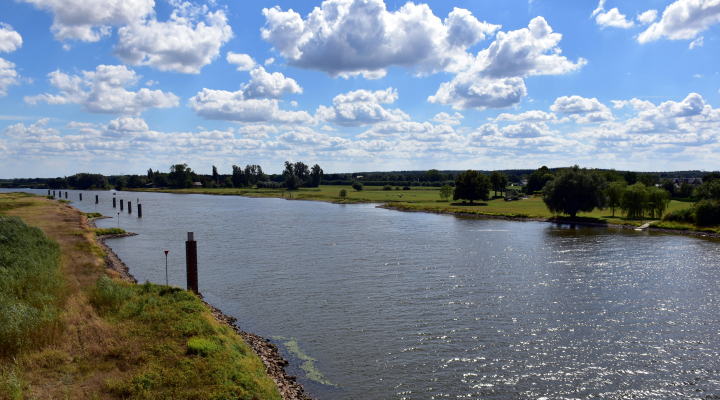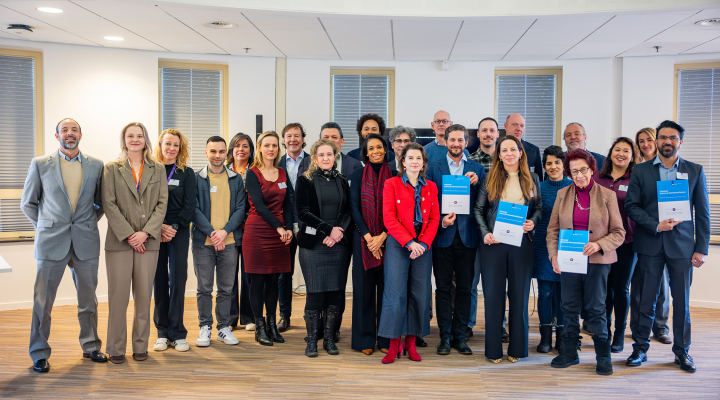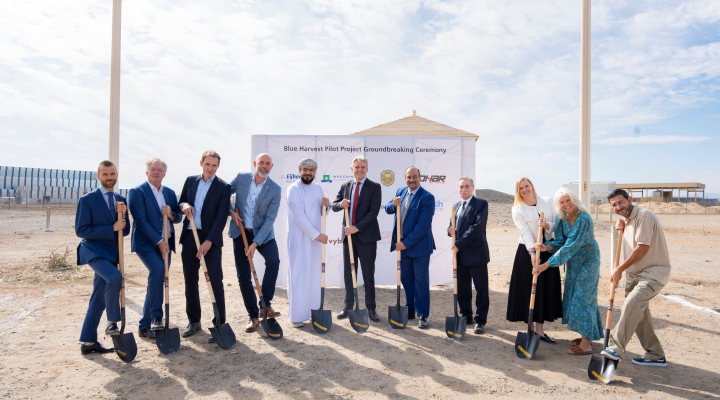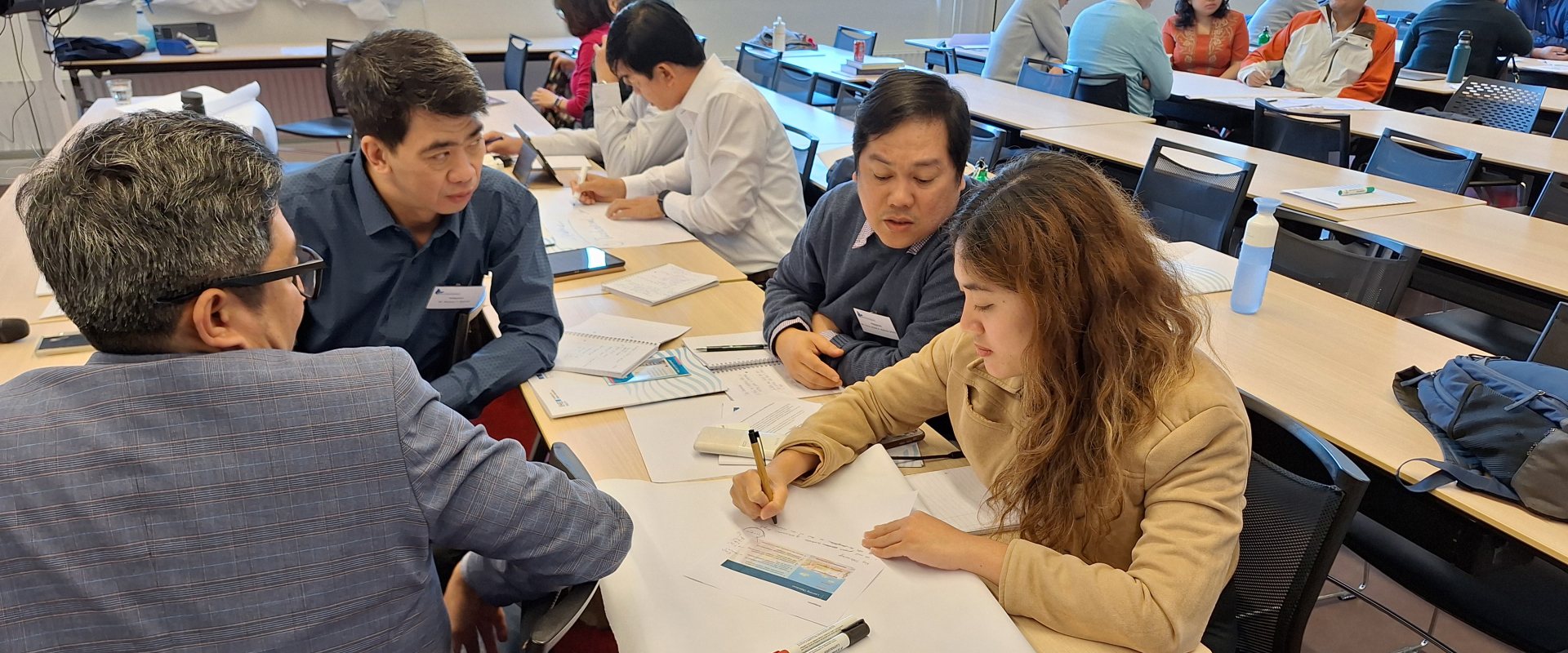
ADB delegates visit the Netherlands for the Asia-Netherlands Water Learning Week
A week-long intensive learning programme brought together almost 50 delegates from 12 project teams across 11 Asian Development Bank member countries with water experts from the Netherlands.
The Asian and Dutch parties expanded their knowledge and shared experiences regarding nature-based solutions for cities, coasts, and river basins through lectures, interactive sessions, and field visits.
Rural and economic water security are gradually improving in Asia and the Pacific, as is water-related risk reduction. However, about two billion people still lack access to basic water and sanitation services, and 80 percent of wastewater generated by cities is discharged untreated into water bodies. Dutch know-how and innovations on nature-based solutions can play a role in addressing these challenges. This was the main subject of the recent Asia-Netherlands Water Learning Week.
Capacity building
The learning week had several objectives which centred around bringing project teams and Dutch experts together and mutual learning. The participating project teams came from Armenia, Bangladesh, the Cook Islands, India, Indonesia, Pakistan, the People’s Republic of China, the Philippines, Thailand, Uzbekistan, and Vietnam.
By discussing current challenges faced by the developing member countries, the group worked on possible solutions and potential implementation plans. As can be seen in the video below, many of the participants plan to adopt their newfound knowledge and skills to benefit the projects in their respective countries.
Nature-based solutions
The demand for water continues to rise in Asia and the Pacific region – not just in agriculture, but in cities and industries too. The region faces water scarcity because of climate change, rapid population increase, and economic growth. Sound water management and access to reliable service delivery remain vital to inclusive economic growth and social well-being.
Satoshi Ishii, Director Strategy and Partnerships Team of the ADB Water Urban Development division, points out that the combination of nature-based solutions and conventional engineering solutions leverages the benefits of ecosystem services, biodiversity, and additional income streams for the people. ADB thus prioritises water investments and interventions to ensure better served, healthier, resilient, and more prosperous communities.
Seeing is believing
During the week, the project teams visited carefully selected locations in Amsterdam, Delft, Gouda, Rotterdam and Scheveningen to hear inspiring case studies on urban resilience, coastal management, integrated water management, flood protection, and climate adaption. The visits enhanced the experience of ‘seeing is believing’. The field visits gave the project teams an understanding of how innovative Dutch solutions on building with nature can be effective, and they supported the discussion on the feasibility and bankability of different projects in the respective countries. Knowledge exchange went both ways as the project teams' firsthand experiences and project challenges at various scales and in different landscapes and contexts led to meaningful discussions with the Dutch participants.
The learning week also included masterclasses and inspiration sessions through which the delegation gained in-depth knowledge on aspects such as legal frameworks, governance and technical innovations. In addition, they attended a mini-exhibition where several Dutch water sector organisations showcased their products, solutions, expertise, and experience on nature-based solutions.
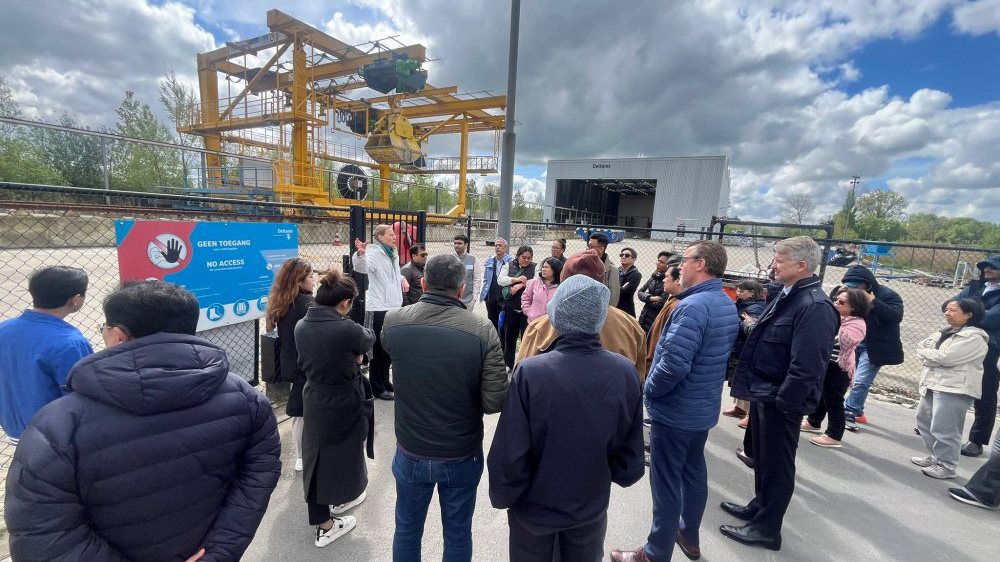
Creating water impact
A survey completed by the participants at the end of the week showed that no less than 83 percent of them intended to adopt some of the solutions they were shown for the projects in their respective countries. They unanimously agreed with the statement that the learning week provided them sufficient opportunities for in-depth exploration of nature-based solutions. The field visits to the Sand Motor and the municipality of Rotterdam were deemed particularly valuable in enhancing their understanding of nature-based approaches. Further, the participants found the team-building exercises during the week particularly effective in fostering collaboration and communications within their project teams. They considered this great added value to the week.
As Sander Carpaij of the Dutch Ministry of Infrastructure and Water Management stated, “It is important to come together, to share knowledge on and learn from each other about the application and financing of nature-based solutions. This is in line with the recently launched NL2120 programme of the Dutch Government."
Tanya Huizer, ADB’s Senior Water Resilience Specialist added that “Our mission was to empower the participants with the knowledge and connections needed to implement nature-based solutions in river basins, and urban and coastal contexts in their countries. The insights shared by Dutch experts, combined with practical site visits and interactions, gave a comprehensive understanding of the enablers, tools and processes that can support their projects. We believe the relationships forged and the knowledge gained during this week will bring significant benefits and drive a water and nature positive future across Asia and the Pacific.”
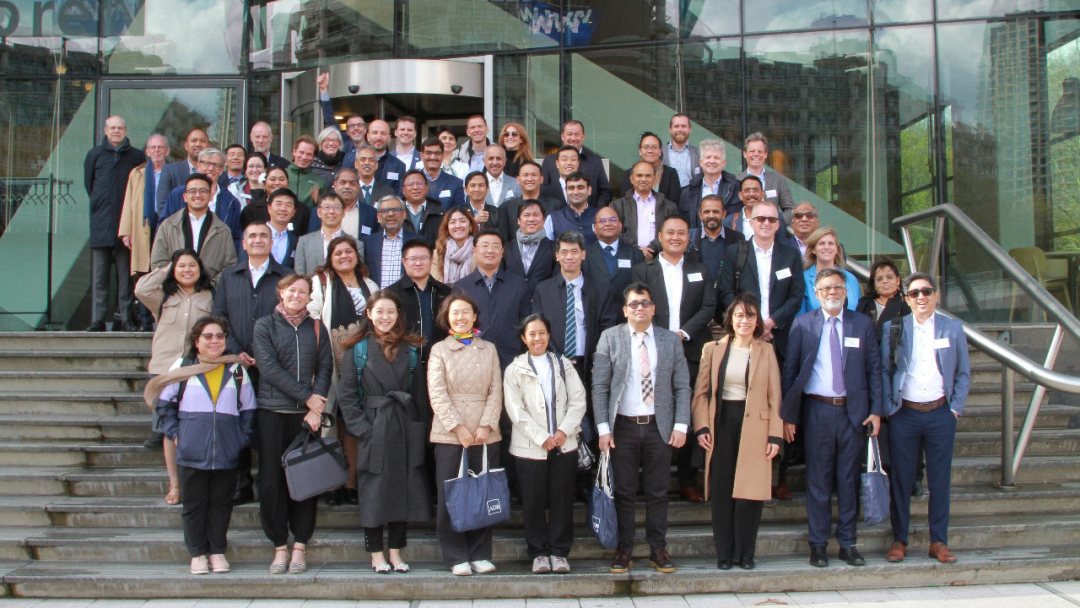
About the Asia-Netherlands Water Learning Week
The learning week was hosted by the Asian Development Bank and the Netherlands Water Partnership last spring. It was made possible with the support of the Government of the Netherlands.
This initiative is a proven concept with a long history. The first Asia-Netherlands Water Learning Week took place in 2012. Since then, there have been several thematic learning weeks, including a week on water security and green growth (2012), disaster risk management (2015), and integrated flood risk management (2018).
This year’s event included Dutch water sector organisations such as: Acacia Water, Adaelta, Arcadis, Blue21, Boskalis, Deltares, Dutch Water Authorities, IHE Delft, LG Sonic, OBM Legal, One Architecture, Rijkswaterstaat (Directorate-General for Public Works and Water Management), the Municipality of Rotterdam, Royal HaskoningDHV, TU Delft, Waternet, Wetlands International, and Witteveen+Bos.




